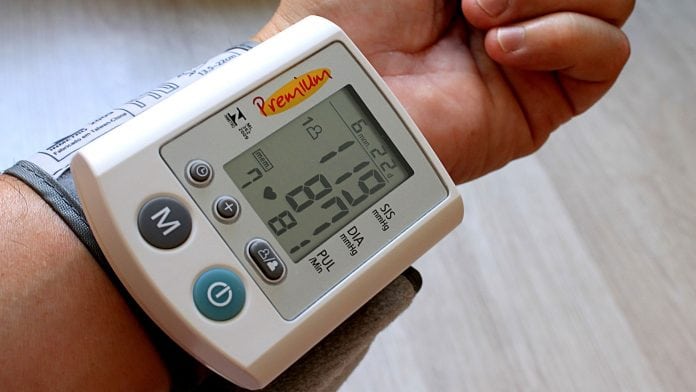
A new study has found that 50-year-olds with blood pressure higher than normal but still below the threshold commonly used when deciding to treat the condition were at risk of developing dementia.
The long-running Whitehall II study comprised 10,000 civil servants between 35-55 years of age and found that increased risk of dementia was seen even when the participants did not have other heart or blood vessel-related problems.
Past studies have found links between raised blood pressure in midlife and increased risk of dementia later on in life; however, the term ‘midlife’ has been poorly defined.
Dr Jessica Abell, the paper’s first author and research associate in dementia and epidemiology at University College London, UK, said: “Previous research has not been able to test the link between raised blood pressure and dementia directly by examining the timing in sufficient detail.
“In our paper we were able to examine the association at age 50, 60 and 70, and we found different patterns of association. This will have important implications for policy guidelines, which currently only use the generic term ‘midlife’.”
The study of blood pressure and dementia
Participants in the study had their blood pressure measured in 1985, 1991, 1997 and 2003. Out of the 8,000 plus analysed, 32.5% of whom were women, 385 developed dementia by 2017.
It was found that those who had systolic blood pressure of 130mmHg or more at the age of 50 had a 45% greater risk of developing dementia than those with lower blood pressure.
This association was not seen at the ages of 60 and 70 and diastolic blood pressure was not linked to the disease.
The link was also found with those who had no evidence of cardiovascular issues during the follow-up period. They had an increased risk of 47% compared to people with systolic blood pressure lower than 130mmHg at age 50.
Professor Archana Singh-Manoux, research professor at INSERM and honorary professor at UCL, who led the research, said: “Our analysis suggests that the importance of midlife hypertension on brain health is due to the duration of exposure. So, we see an increased risk for people with raised blood pressure at age 50, but not 60 or 70, because those with hypertension at age 50 are likely to be ‘exposed’ to this risk for longer.”
The average age at which the study participants developed dementia was 75.
What are the possible reasons for the link to dementia?
It is believed that one reason for the link between raised blood pressure and dementia is the fact that high blood pressure is linked to silent or mini strokes which damage the white matter in the brain, which contains many of the brain’s nerve fibres, and restrict blood supply to the brain.
Abell said: “It is important to emphasise that this is observational, population-level research and so these findings do not translate directly into implications for individual patients. Furthermore, there is considerable discussion on the optimal threshold for the diagnosis of hypertension.
“There is plenty of evidence to suggest that maintaining a healthy blood pressure in middle age is important for both your heart and your brain later in life. Anyone who is concerned about their blood pressure levels should consult their GP.”






















